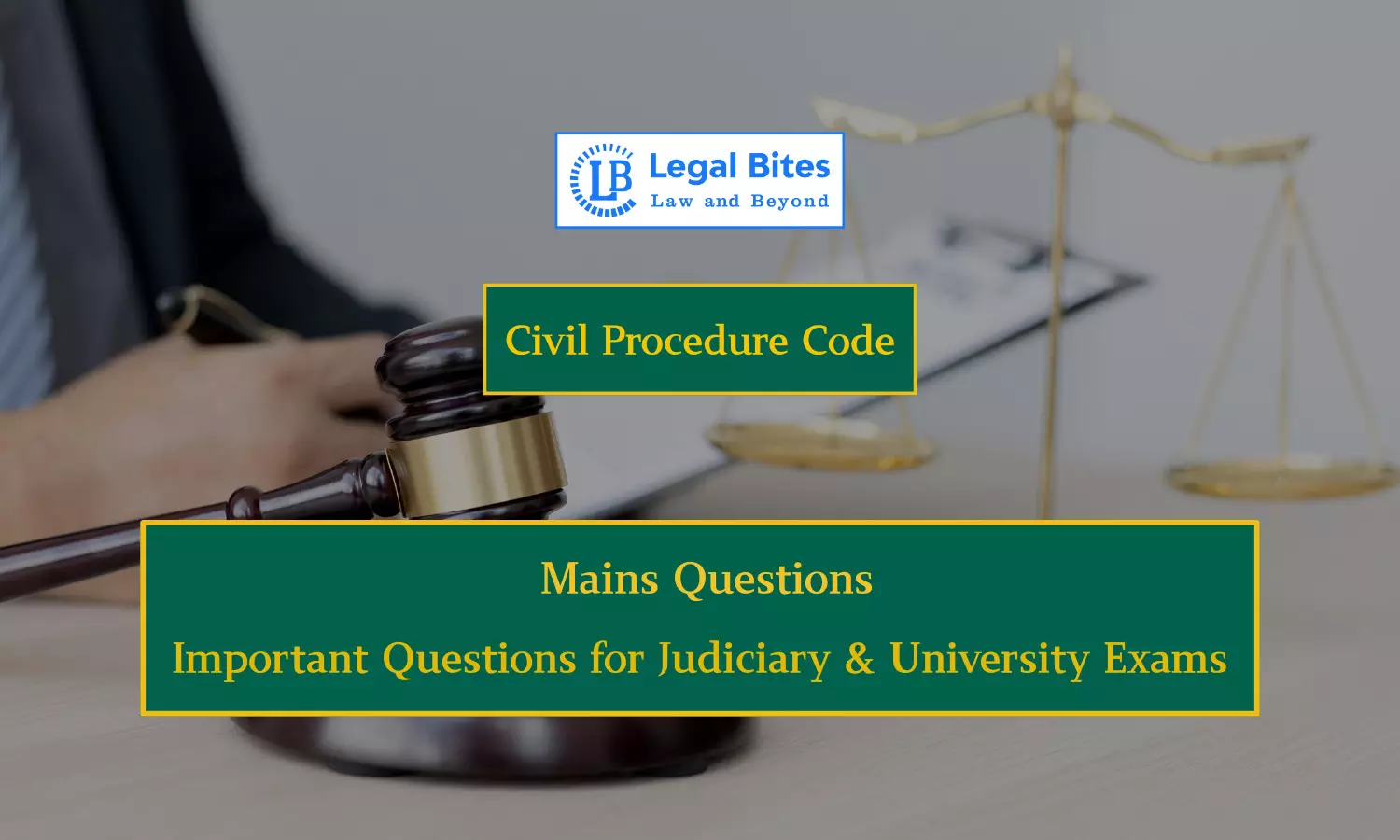Write a short note on 'Summons'.
Find the answer to the mains question only on Legal Bites.

Question: Write a short note on 'Summons'. [OJS 2019]
Find the answer to the mains question only on Legal Bites. [Write a short note on 'Summons'.]
Answer
A summons is a formal notice issued by a court requiring a person to appear before it on a specified date. In civil proceedings, the issuance and service of summons are governed by Sections 27 to 32 and Order V of the Code of Civil Procedure, 1908 (CPC).
Once a suit is instituted, the court issues a summons to the defendant to inform them about the legal action and to provide an opportunity to appear and respond. Order V Rule 1 empowers the court to issue a summons directing the defendant either to appear in person or to appear and file a written statement. The principle behind issuing summons is to ensure fair hearing and natural justice, ensuring that no party is taken by surprise.
If the defendant fails to respond to the summons, the court may proceed ex parte under Order IX Rule 6.
Modes of Service of Summons:
Order V Rule 9: Service through court officers.
Order V Rule 9A: Allows service through private individuals with the court’s permission.
Order V Rule 15: If the defendant is not available, summons may be served to an adult male or female member of the family residing with them.
Order V Rule 20: Permits substituted service, such as by publication in a newspaper, when all standard methods fail.
Important Case Laws:
Sushil Kumar Sabharwal v. Gurpreet Singh & Ors., (2002) 5 SCC 377:
The Supreme Court held that actual and effective service of summons is essential. A mere formality does not satisfy legal requirements. Failure to properly serve summons is a valid ground for setting aside an ex parte decree.
Neerja Realtors Pvt. Ltd. v. Janglu, (2018) 2 SCC 649:
The Court emphasised that substituted service under Order V Rule 20 should only be resorted to after exhausting other prescribed modes. Strict compliance with Rules 17 and 20 is mandatory to uphold the validity of the service.
Summons form the bedrock of procedural fairness in civil litigation. Proper issuance and service are crucial for upholding due process, and non-compliance may render the proceedings defective or voidable.
Important Mains Questions Series for Judiciary, APO & University Exams
- CPC Mains Questions Series: Important Questions Part – I of X
- CPC Mains Questions Series: Important Questions Part – II of X
- CPC Mains Questions Series: Important Questions Part – III of X
- CPC Mains Questions Series: Important Questions Part – IV of X
- CPC Mains Questions Series: Important Questions Part – V of X
- CPC Mains Questions Series: Important Questions Part – VI of X
- CPC Mains Questions Series: Important Questions Part – VII of X
- CPC Mains Questions Series: Important Questions Part – VIII of X
- CPC Mains Questions Series: Important Questions Part – IX of X
- CPC Mains Questions Series: Important Questions Part – X of X

